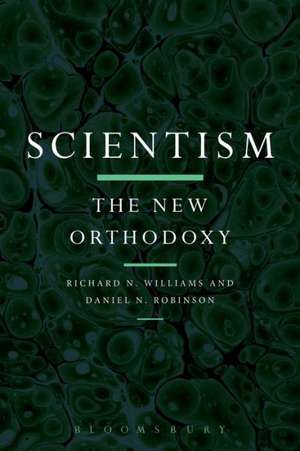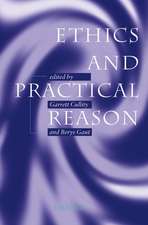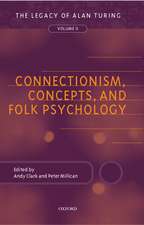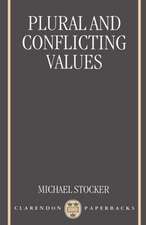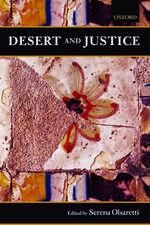Scientism: The New Orthodoxy
Editat de Dr. Richard N. Williams, Professor Daniel N. Robinsonen Limba Engleză Hardback – 19 noi 2014
| Toate formatele și edițiile | Preț | Express |
|---|---|---|
| Paperback (1) | 256.20 lei 6-8 săpt. | |
| Bloomsbury Publishing – 18 mai 2016 | 256.20 lei 6-8 săpt. | |
| Hardback (1) | 772.58 lei 6-8 săpt. | |
| Bloomsbury Publishing – 19 noi 2014 | 772.58 lei 6-8 săpt. |
Preț: 772.58 lei
Preț vechi: 1112.20 lei
-31% Nou
Puncte Express: 1159
Preț estimativ în valută:
147.83€ • 154.76$ • 122.32£
147.83€ • 154.76$ • 122.32£
Carte tipărită la comandă
Livrare economică 05-19 aprilie
Preluare comenzi: 021 569.72.76
Specificații
ISBN-13: 9781472571106
ISBN-10: 147257110X
Pagini: 208
Dimensiuni: 156 x 234 x 18 mm
Greutate: 0.45 kg
Editura: Bloomsbury Publishing
Colecția Bloomsbury Academic
Locul publicării:London, United Kingdom
ISBN-10: 147257110X
Pagini: 208
Dimensiuni: 156 x 234 x 18 mm
Greutate: 0.45 kg
Editura: Bloomsbury Publishing
Colecția Bloomsbury Academic
Locul publicării:London, United Kingdom
Caracteristici
The first comprehensive guide to the question of scientism, clarifying and defining key terms
Notă biografică
Richard N. Williams is Professor of Psychology and Director of the Wheatley Institution at Brigham Young University, USA.Daniel N. Robinson is Professor of Philosophy at the University of Oxford, UK, and Distinguished Professor Emeritus at Georgetown University, USA.
Cuprins
Notes on Contributors Introduction: Scientism: the New Orthodoxy, Richard Williams1. Science, Scientism and Explanation, Daniel N. Robinson2. Scientism and the Religion of Science, Lawrence M. Principe3. Naturalism in Epistemology, Bas C. van Fraassen4. Philosophy and Scientism: What Cognitive Neuroscience Can, and What It Cannot, Explain, P. M. S. Hacker5. The Implausibility of Physical Determinism, Richard Swinburne6. Scientism and the Humanities, Roger Scruton7. Neuroethics, Kenneth F. Schaffner8. Science as Cultural Performance: Leveling the Playing Field in the Theology & Science Conversation, James K.A. SmithIndex
Recenzii
Scientism: The New Orthodoxy is a rich and rewarding collection of essays from a wide range of perspectives. I can easily envision parts of it being taught - perhaps alongside more fundamental work in the philosophy of science and epistemology - in upper-level undergraduate or graduate seminars that want to engage contemporary intellectual life and the relations between science and philosophy. I hope it finds a wide readership among philosophers and other humanities scholars, as well as among scientists and the broader public.
Overall, the volume provides points of entry into the worries philosophers of several different schools have raised about scientism. Readers who have encountered attempts to adjudicate social-scientific, humanistic, or religious claims on the basis of the natural sciences and come away thinking something is amiss will find here several candidate diagnoses and critiques ... The book's optimal home might be courses in which the individual articles could provide occasion for such contextualization and further critical discussion.
Scientism: The New Orthodoxy is a rich and rewarding collection of essays from a wide range of perspectives. I can easily envision parts of it being taught - perhaps alongside more fundamental work in the philosophy of science and epistemology - in upper-level undergraduate or graduate seminars that want to engage contemporary intellectual life and the relations between science and philosophy.
Scientism is an over reliance on or overconfidence in the sciences as the only route to reliable knowledge. It is motivated by successful and effective technological outcomes that suggest scientific methods are a great, if not the best, source of knowledge for addressing any and all problems . This eclectic volume, which varies widely in style and scope, includes historical perspectives on scientism, religion, culture, and the humanities; critical assessments of cognitive neuroscience and neuroethics; and reflections on naturalism in epistemology. Two messages emerge from the variety: scientism must be distinguished from the sciences, and the practices and results of the sciences require explicit interpretation . Summing Up: Recommended. Graduate students and faculty.
Overall, the volume provides points of entry into the worries philosophers of several different schools have raised about scientism. Readers who have encountered attempts to adjudicate social-scientific, humanistic, or religious claims on the basis of the natural sciences and come away thinking something is amiss will find here several candidate diagnoses and critiques ... The book's optimal home might be courses in which the individual articles could provide occasion for such contextualization and further critical discussion.
Scientism: The New Orthodoxy is a rich and rewarding collection of essays from a wide range of perspectives. I can easily envision parts of it being taught - perhaps alongside more fundamental work in the philosophy of science and epistemology - in upper-level undergraduate or graduate seminars that want to engage contemporary intellectual life and the relations between science and philosophy.
Scientism is an over reliance on or overconfidence in the sciences as the only route to reliable knowledge. It is motivated by successful and effective technological outcomes that suggest scientific methods are a great, if not the best, source of knowledge for addressing any and all problems . This eclectic volume, which varies widely in style and scope, includes historical perspectives on scientism, religion, culture, and the humanities; critical assessments of cognitive neuroscience and neuroethics; and reflections on naturalism in epistemology. Two messages emerge from the variety: scientism must be distinguished from the sciences, and the practices and results of the sciences require explicit interpretation . Summing Up: Recommended. Graduate students and faculty.
